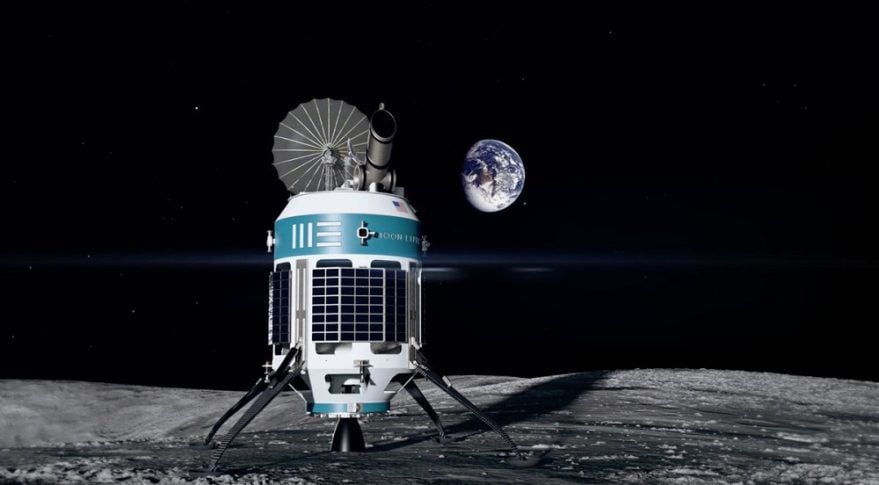Tucson-based Paragon Space Development Corp. is part of a team that will be eligible to bid on up to $2.9 billion worth of contracts to deliver payloads to the surface of the moon.
NASA recently announced nine U.S. companies eligible to bid on NASA delivery services to the lunar surface through Commercial Lunar Payload Services contracts, calling it “one of the first steps toward long-term scientific study and human exploration of the moon and eventually Mars.”
Paragon is teaming up with one of the chosen nine, Moon Express, a Florida-based startup initially formed by a group of Silicon Valley and space entrepreneurs with the goal winning the $30 million Google Lunar X Prize for the first private venture to land a robotic spacecraft on the moon.
A longtime NASA contractor for life-support systems and environmental controls, Paragon is currently working on about $9 million worth of NASA development contracts, including a project to recycle a high percentage of waste into potable water in space.
Moon Express was one of five finalists when Google announced no one would meet the March 2018 deadline and canceled the prize competition.
But the company, which is based at Cape Canaveral, has developed four lunar landers for moon-based research and potentially for lunar mineral mining, and it plans its first landing expedition next year.
Moon Express’ other partners supporting the Commercial Lunar Payload Services work are aerospace systems provider Sierra Nevada Corp., space engineering specialist Odyssey Space Research and NanoRacks LLC, a provider of small-satellite deployment systems.
The nine companies will be able to bid on delivering science and technology payloads for NASA, including payload integration and operations, launching and lunar landing, as well as for private customers.
VECTOR-CITRIX PACT
A little closer to Earth, Tucson-based micro-satellite launch startup Vector recently signed on with Citrix Systems, one of the world’s biggest providers of network software and cloud-computing services, to provide remote launch capabilities for clients of its nascent business.
The agreement builds on the technology partnership Vector announced with Citrix in May 2017 to develop datacenter and cloud technology for space with a software-defined satellite platform with Vector’s GalacticSky system.
Vector, which is preparing for its first orbital launch early next year, has developed a line of small rockets to carry a new generation of mini-satellites into space at a fraction of the cost of hitching a ride on a larger rocket.
The company plans to offer clients the opportunity to create networks in space for communications, imaging and whatever applications they can think of, said Vector CEO Jim Cantrell.
“Our ultimate vision is one of space app developers being able to develop satellite applications on their desktop computer and upload them to an already orbiting satellite constellation yielding nearly instant data and revenue,” Cantrell said in announcing the remote-launch capability.
The Citrix technologies will allow mission-control crews and remote teams to collaborate to launch, monitor and control rockets, the companies said.
With annual revenue of nearly $3 billion, Citrix boasts more than 400,000 client organizations including 99 percent of the Fortune 100 and 98 percent of the Fortune 500.
UA PROFS NAMED INVENTOR FELLOWS
Two University of Arizona professors, including the dean of the College of Optical Sciences, have been named Fellows of the National Academy of Inventors.
Thomas Koch, UA optics professor and dean, and Harrison Barrett, Regents’ Professor of medical imaging, optical sciences and applied mathematics, join five other faculty members as fellows of the Florida-based organization.
Dean of Optical Sciences since 2012, Koch spent many years in research at Bell Laboratories, and held research and development vice president positions at SDL, Lucent Technologies, and Agere Systems, developing optical and integrated-circuit technology platforms and winning many of his 37 patents.
A member of the National Academy of Engineering and a fellow of the Institute of Electrical and Electronics Engineers, Koch has been honored pioneering contributions to semiconductor optoelectronics, photonic integrated circuits and optical fiber communications.
Barrett, who specializes in medical imaging technology, is a member of the National Academy of Engineering who has won numerous awards including the IEEE Medal for Innovations in Healthcare Technology and the Humboldt Prize. He holds 27 patents and was named a Regents’ Professor in 1990.
Barrett is also the founding director of the Center for Gamma-Ray Imaging at the UA, and his research has spawned several startup companies.





